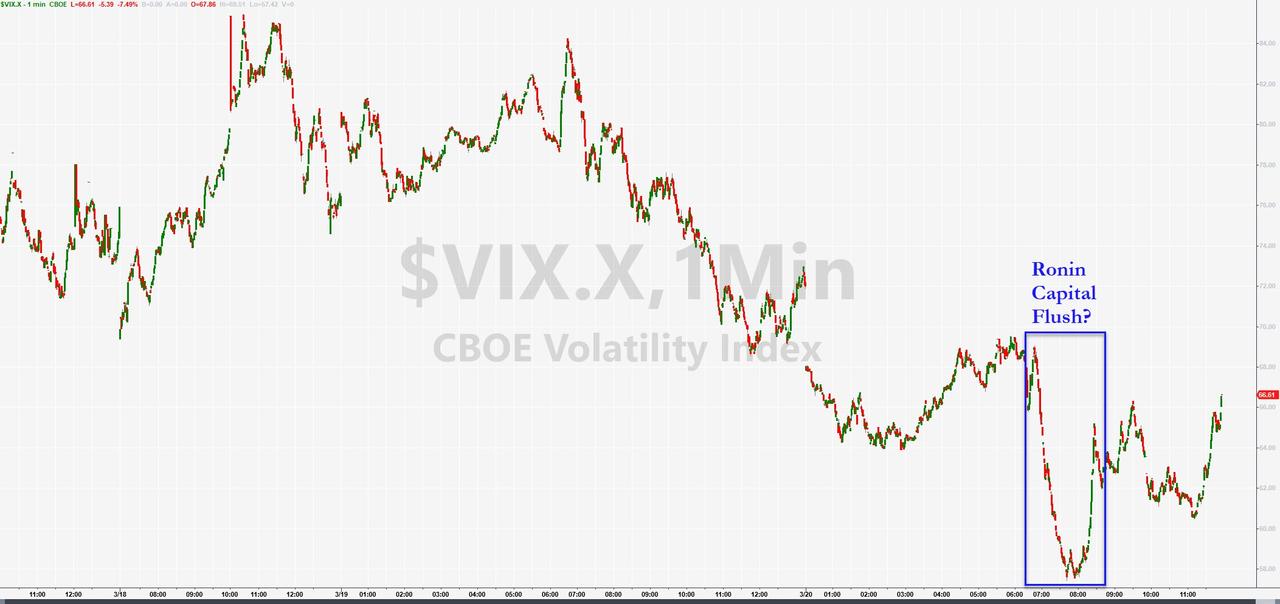While we have certainly had our share of dismal fund returns in the past two weeks, in the aftermath of a market crash that is now worse than the Great Depression, so far one thing was missing: a big blow up, where a fund is margined out and forced to liquidate Friday morning. Think "Duke & Duke."
Well, no more: according to CNBC's Scott Wapner, one of the CME’s direct clearing firms was unable to meet its capital requirements on Friday, forcing the exchange to step in and invoke its "emergency protocols" to auction off the firm's portfolios.
The firm in question: Ronin Capital, which on its website says "seeks the best and brightest people who embrace our Firm’s culture, and can thrive in a dynamic, entrepreneurial trading environment." Apparently, that also meant being unable to quantify your risk exposure.
Terry Duffy, CME Group’s Chairman and CEO, told CNBC the auction process was completed Friday morning, but said the group doesn’t disclose who assumed the portfolios in the auction.
The good news is that unlike that other CME disaster, MF Global, when Ronin - which is responsible for trades made on the exchange - no customers were harmed...
Duffy also said that under its clearing agreement, Ronin isn’t allowed to have outside clients so there were no customers harmed in the process.
Or at least not directly: after all, like every other prop trader, Ronin invests outside capital, and in this case said capital is about to be much less.
What sparked the collapse? According to Wapner, "Ronin’s problems stemmed from positions in futures tied to the CBOE Volatility Index, or the security that tracks market volatility." It is unclear what particular move tripped the margin call-inducing stops, but there was an odd move in the VIX this morning which may have been related.
The Depository Trust and Clearing Corporation, or DTCC, helped coordinate the auction, later saying it had ceased to act for Ronin Capital, although it did not disclose who assumed the firm's portfolios.
The biggest irony: in its "About Us" section, the firm writes that "much of Ronin’s success derives from our superior risk management experience. Our unique approach combines sophisticated quantitative market analysis with years of proven trading expertise, across multiple products."
It's out that Ronin's failure will in turn derive from its catastrophic risk management experience.

